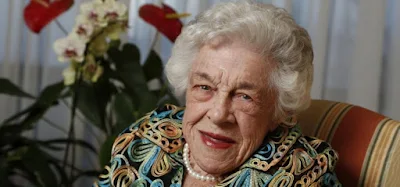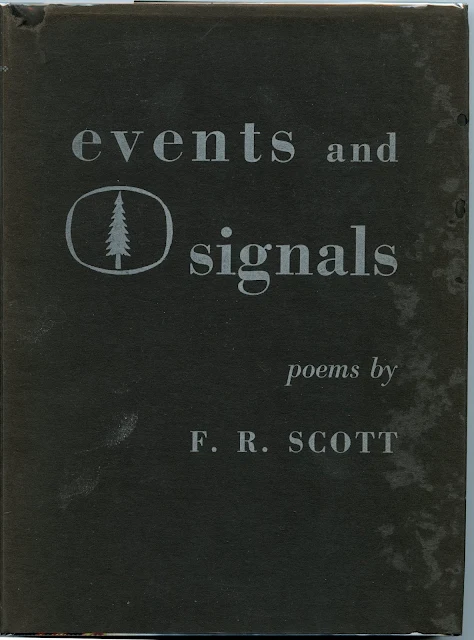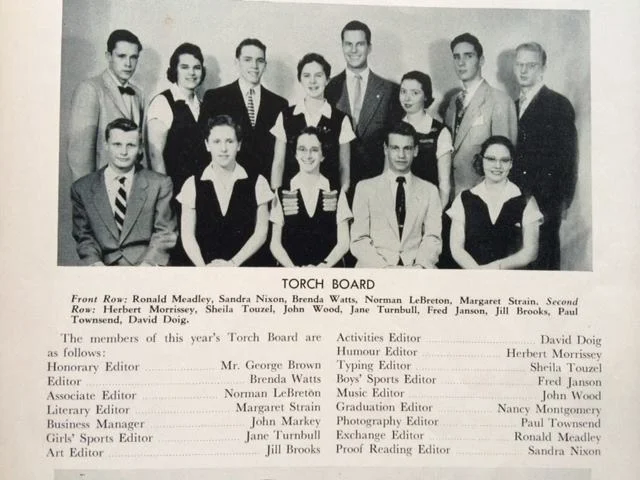My interest in Miss Whitley is because she knew the Morrisey family; Darrell Morrisey is one of the "lost" Beaver Hall artists. I met Miss Whitley at St. James the Apostle Anglican Church, on Ste. Catherine Street in downtown Montreal, when the memorial to F.R. Scott was unveiled there. By chance I asked her if she knew the Morrisey family (no relation to me) and she had known them; she had known Darrell's brother T.S. Morrisey but not Darrell who died in 1930.
Here is my essay on Darrell Morrisey:
https://archive.org/details/DARRELLMORRISEYAForgottenBeaverHallArtistByStephenMorrissey
Life Stories: Barbara Whitley had an eye for penmanship and philanthropy
https://archive.org/details/DARRELLMORRISEYAForgottenBeaverHallArtistByStephenMorrissey
 |
| St. James the Apostle Anglican Church, 1890 |
Whitley spent decades as a volunteer with the Montreal General Hospital, one of many places she touched
Barbara Whitley felt that writing was sacred.
With an eye for detail, she adored the graceful and elegant italic penmanship style she grew up learning. Whitley, who died in May at the age of 100, went to school at The Study, a private all-girls school in Westmount, graduating in 1936. Even after her studies, Whitley remained deeply involved in the school as a volunteer.
In a world increasingly reliant on technology, Whitley wanted to preserve the art of penmanship. At one point she approached the school’s headmistress, Katharine Lamont, about rewarding students for outstanding penmanship. Two years later, the Barbara Whitley Handwriting Prize was created.
“She decided to donate this prize to the school one day on a whim, thinking that the art of handwriting was lost,” said Pattie Edwards, director of Alumnae Relations at The Study. “She didn’t think it would become a tradition, but we’ve been carrying on that tradition for a very long time.”
In 1973, Whitley helped create The Study School Foundation to help enhance the education of its students. Decades later, its endowment stands at more than $5 million.
“She was a really amazing, amazing woman,” Edwards said.
Whitley completed her undergraduate studies at McGill University. McGill’s Schulich School of Music held a special place in Whitley’s heart, and in the early 2000s she financially supported the creation of the Gertrude Whitley Performance Library, named in memory of her mother. The library now has more than 5,500 ensemble scores and parts in its collection. It also provides all the music material to the McGill Symphony Orchestra, the University Chorus and the Jazz Orchestra. She also gave frequent gifts to the MUHC and other parts of the school.
In her youth, Whitley was a stage actor and worked with famed humorist Stephen Leacock. She even joined him on his radio broadcasts. Whitley was heavily involved in the Centaur Theatre and Geordie Productions. One of her final stage roles was as a poisonous sister in the production of the thriller Arsenic and Old Lace.
“She was a really great artist,” Edwards said.
For Whitley, giving back to the community was almost instinctual. Her father, Ernest, had experienced eye problems when she was growing up. Later on, she supported causes related to vision and service dogs.
“Eye health was very close to her heart,” Edwards said. “She was just one of those people who just believed that if something needed to be done, she would do it. And she would get it done, and make it beautiful and special.”
Whitley was also known to help individuals, rarely taking credit for the work she did. Eventually, her trophy shelf became filled with honours from the Governor General (Caring Canadian Award in 2004), Queen Elizabeth (Diamond Jubilee Medal in 2013) and MUHC (Lifetime Achievement Award in 2016).
“When I sent out the notice for her death, there were a number of people writing back to tell me about how they spent time with Miss Whitley, about how Miss Whitley got her their first job, about how Miss Whitley touched their lives in some way or another,” Edwards said.
Beyond her philanthropy, Whitley was a riveting storyteller. She’d often hold court in her Westmount apartment, telling tales of Montreal’s good old days.
“Stories about the history that we didn’t know existed,” Edwards said. “The community, Montreal, people in fundraising, and everybody’s brother, sister, cousin. She knew everybody. You could listen to her talk all day long.”
A month before she died, Whitley celebrated her 100th birthday. It was a grand occasion, taking place at the Atwater Club, and dozens of relatives from Ontario made the trip to toast Whitley. It would be the last time many of them saw her, but she won’t soon be forgotten.
“Our slogan at the school is, ‘The world needs great women,’ ” Edwards said.
“She really was a formidable woman.”
Barbara Whitley
Born: April 8, 1918
Died: May 18, 2018



















.JPG)


